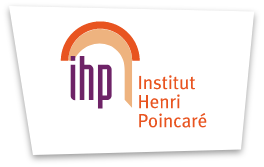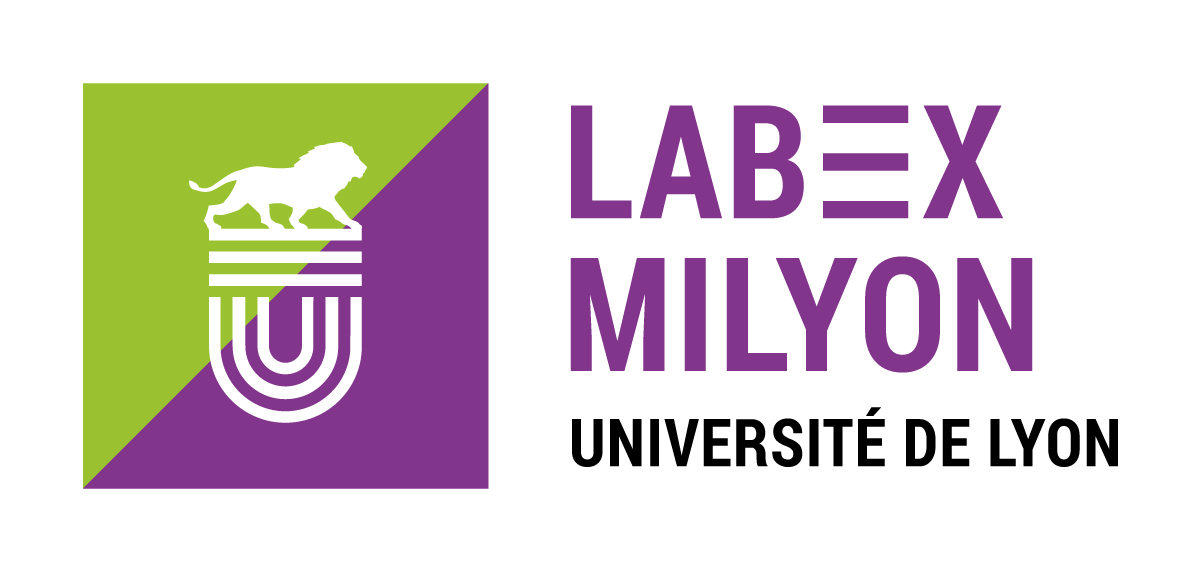Whole French year 2023 dedicated to computer algebra.
Preparatory School during the French Computer Algebra Days, March 6-10, Luminy.
MiLyon trimester Spring 2023, with three 1-week workshops:
- Effective Aspects in Diophantine Approximation (March 27-31)
Organized by B. Adamczewski, A. Bostan, B. Salvy, W. Zudilin. - Certified and Symbolic-Numeric Computation (May 22-26)
Organized by N. Brisebarre, A. Mahboubi, D. Pous, B. Salvy. - Mathematical Software and High Performance Algebraic Computing (June 26-30)
Organized by W. Decker, J.-G. Dumas, C. Pernet, E. Thomé, G. Villard
IHP Paris Trimester Fall 2023 with courses, topical days, seminars, general audience talks and three 1-week workshops:
-
Fundamental Algorithms and Algorithmic Complexity
Special week, September 18-22
Workshop, organized by J. van der Hoeven, M. Giesbrecht, P. Koiran, G. Villard, September 25-29 -
Geometry of Polynomial System Solving, Optimization and Topology
Special week, October 9-13
Workshop, organized by C. D’Andrea, P. Lairez, M. Safey El Din, É. Schost, L. Zhi, October 16-20
Topical day, organized by J. Schicho, October 24 -
Computer Algebra for Functional Equations in Combinatorics and Physics
Special week, November 27 - December 1
Workshop, Organized by A. Bostan, J. Bouttier, T. Cluzeau, L. Di Vizio, C. Krattenthaler, P. Lairez, J.-M. Maillard, December 4-8
Topical day, organized by G. Pogudin, December 11
Context
Computer algebra, a.k.a. symbolic computation, is a broad transdisciplinary area which aims at computerizing mathematics, i.e. solving exactly mathematical problems, using computers. Hence, it encompasses effective mathematics in algebra, analysis, geometry and number theory, the design of algorithms, the study of their complexities, their implementations and their use in applications, as well as software system aspects to manipulate and encode efficiently mathematical objects.
Computer algebra was born in the 60’s from several directions. To cite a few, let us mention the need for lengthy and reliable computations by physicists; results in logic showing that the problem of simplification is undecidable; results in differential algebra leading to Risch’s decision algorithm for symbolic integration; fast algorithms for polynomial gcd and factorization; the invention of Gröbner bases for polynomial ideals; and the realization of the importance of complexity estimates for these algorithms due to the large size of the objects they computed with. These directions shaped the landscape of our discipline and are still very much active today.
The next decades saw the blossoming of the area. New computer algebra systems were born and reached millions of users; a large number of researchers were attracted by the novelty of this area; journals and conferences were created. The interactions with effective algebraic geometry on the one side and with differential algebra on the other side were deepened and strengthened. Efficiency issues led to the design and implementation of numerous specialized libraries. A large body of knowledge on algebraic algorithms and their complexity was developed. Specialized books made the area accessible to a wider audience.
Computer algebra reached a new milestone in the beginning of the new millennium by bringing together algebraic complexity with high performance computing paradigms, in order to obtain practically fast algorithms and successors of the libraries initiated in the 90’s. Through a large dissemination, this allowed these computer algebra software to become routine tools in application fields such as cryptography, coding theory, combinatorics and the analysis of algorithms in computer science, as well as in robotics, chemistry, biology and theoretical physics in engineering sciences.
Content and objectives of the quarters
Because of the sophistication of these high performance implementations, combined with the use of Monte Carlo probabilistic algorithms, reliability issues were raised. Certification from various viewpoints and methodologies emerged. Especially, interactions between computer algebra and theorem provers increased significantly during the last decade. In parallel, the design and computation of certificates that can be efficiently checked a posteriori arose as a fundamental problem from the angles of algebraic complexity, interactive proof and the numerical hybridization of some computer algebra routines. These active trends are nowadays considered crucial to the development of reliable experimental mathematics through computer algebra.
Still, besides the progress made these last years, many important industrial and theoretical applications such as polynomial optimization problems (for energy minimization), analysis of integrable models (in theoretical physics) or topological analysis of semi-algebraic sets (for mechanism design) require further developments in computer algebra. They bring new algorithmic problems ranging from fundamental algebraic complexity theory to the resolution of functional equations, including algebraic and differential systems.
The challenge of conciliating reliability with efficiency and the convergence of interests for experimental mathematics and applications is an opportunity to bring together end-users of computer algebra (in mathematics, theoretical physics, mechanism design, and other applications) with computer algebra experts. Fostering these exchanges will allow these communities to identify the different specifications, levels of certification and ways to harness computational power required by the core research of the community and in various application contexts and tackle the different complexity models. This will pave the way to the next generation of computer algebra algorithms and software. One of the main goals of this series of events is to push forward the current limits by investigating recent trends of this broad area, such as the design of algorithms exploiting and discovering structural properties, the hybridization of exact computing through rigorous numerical approximations, the guess-and-prove paradigms, as well as high performance computing issues. These are our means to provide better algorithmic and computer algebra software solutions to topical trans-disciplinary applications in engineering sciences, experimental mathematics and theoretical physics. These issues will be broadly covered with various computer algebra events we organize in 2023 in Lyon and Paris.

